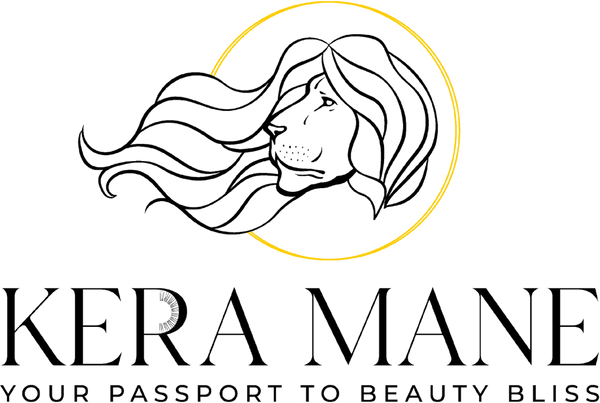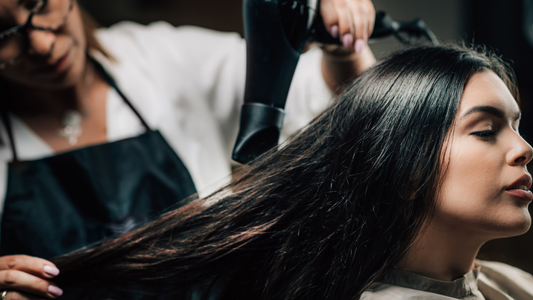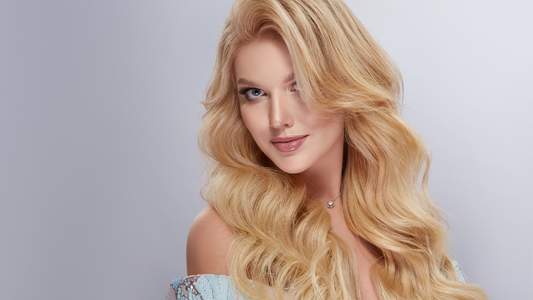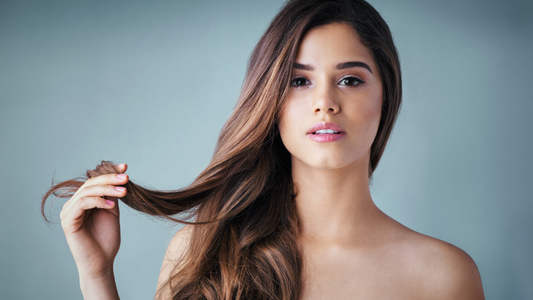Keratin treatments are known for transforming frizzy, unmanageable hair into sleek, smooth, and shiny locks. However, many consumers are becoming increasingly concerned about the ingredients used in these treatments, particularly the role of alcohol. Alcohols are common in a variety of hair care products, but not all alcohols are created equal. Some can be beneficial, while others may lead to dryness and damage if overused.
In this blog, we’ll explore the types of alcohols commonly used in keratin treatments, explain how they affect hair health, and offer tips on choosing keratin products that strike the right balance for your hair’s needs. We’ll also highlight how Kera Mane Keratin Hair Treatment is formulated to deliver smooth, strong results without compromising the health of your hair.
Understanding Alcohol in Hair Care: The Basics
When it comes to hair care products, alcohols serve a variety of purposes, from helping products absorb quickly to ensuring a smooth application. However, not all alcohols have the same effect on hair health. There are two broad categories of alcohols used in hair care products: short-chain alcohols (also known as drying alcohols) and long-chain alcohols (also known as fatty alcohols).
Short-Chain (Drying) Alcohols:
- Common Examples: Ethanol, isopropyl alcohol, SD alcohol, and alcohol denat (denatured alcohol).
- Purpose: These alcohols evaporate quickly and are often used to help hair care products dry faster or as solvents to dissolve other ingredients.
- Effect on Hair: Short-chain alcohols can strip moisture from the hair, leading to dryness, frizz, and damage over time. These alcohols are typically more harmful to hair health, especially for those with dry, curly, or damaged hair.
Long-Chain (Fatty) Alcohols:
- Common Examples: Cetyl alcohol, stearyl alcohol, cetearyl alcohol, and behenyl alcohol.
- Purpose: Fatty alcohols are emollients that help to smooth and soften the hair. They are often used to thicken products and provide moisture, making them beneficial for hair health.
- Effect on Hair: Long-chain alcohols are moisturizing and help to create a protective barrier around the hair shaft, reducing frizz and improving manageability.
The Role of Alcohols in Keratin Treatments
Keratin treatments are designed to smooth and repair hair by infusing it with keratin protein. Alcohols are often included in keratin formulas for specific reasons, such as improving the product’s texture, allowing for better absorption, or aiding in the application process. However, the type of alcohol used can dramatically influence the outcome.
Here’s a breakdown of how alcohols typically function in keratin treatments:
1. Short-Chain Alcohols in Keratin Treatments
- Purpose: Short-chain alcohols like ethanol or isopropyl alcohol are sometimes used in keratin treatments to act as solvents. These alcohols help dissolve other ingredients in the formula and ensure that the product applies evenly to the hair.
- Effect on Hair: While short-chain alcohols can improve product application, they can also dry out the hair if used in high concentrations. Because these alcohols evaporate quickly, they may strip away natural oils and moisture, leading to dryness, brittleness, and frizz. This can be particularly damaging for individuals with already dry or chemically treated hair.
- Potential Risks: Over time, frequent exposure to short-chain alcohols can weaken the hair shaft, cause split ends, and leave hair feeling rough and damaged. It’s important to be cautious about products that list drying alcohols as one of the primary ingredients.
2. Long-Chain Alcohols in Keratin Treatments
- Purpose: Long-chain alcohols, or fatty alcohols, are often used in keratin treatments as conditioning agents. These alcohols provide a creamy, rich texture to the product and help to lock in moisture, making hair softer and smoother.
- Effect on Hair: Fatty alcohols are beneficial for hair because they help to hydrate and condition the strands, reducing frizz and making hair more manageable. These alcohols form a protective barrier around the hair shaft, sealing in moisture and preventing dryness. Unlike drying alcohols, fatty alcohols contribute to the overall health and softness of the hair.
- Benefits for Hair Health: By using fatty alcohols, keratin treatments can provide a more nourishing and hydrating experience, leaving hair smooth and silky without the risk of drying it out.
Choosing the Right Keratin Treatment: Alcohols to Watch For
When selecting a keratin treatment, it’s important to pay attention to the ingredients list to ensure that the product is formulated with the right type of alcohols for your hair’s needs. Here’s what to look for:
1. Avoid High Concentrations of Short-Chain Alcohols
- What to Watch For: Products that list short-chain alcohols (such as ethanol or alcohol denat) high on the ingredients list may contain high concentrations of drying alcohols, which can lead to dryness and damage over time. While these alcohols may serve a purpose, they should ideally be used in lower concentrations or not at all.
- Who Should Avoid Them: If you have dry, curly, or chemically treated hair, it’s especially important to avoid keratin treatments with high levels of short-chain alcohols, as these can exacerbate frizz and dryness.
2. Look for Fatty Alcohols for Hydration
- What to Watch For: Long-chain alcohols like cetyl alcohol, stearyl alcohol, or cetearyl alcohol are beneficial for hair and can be found in many high-quality keratin treatments. These alcohols help moisturize and soften the hair, making them ideal for those seeking a smoothing treatment that also conditions the hair.
- Who Should Use Them: Fatty alcohols are suitable for all hair types, especially for those with dry, damaged, or frizzy hair. They help to enhance the moisturizing effects of a keratin treatment and keep hair healthy and shiny.
3. Balance Between Alcohols and Other Ingredients
- What to Watch For: In addition to fatty alcohols, look for keratin treatments that are rich in other moisturizing and nourishing ingredients, such as natural oils (argan oil, coconut oil) or proteins. These ingredients help counteract any drying effects that may come from small amounts of short-chain alcohols, ensuring that your hair remains hydrated and smooth.
Kera Mane’s Formula: Kera Mane Keratin Hair Treatment is carefully formulated to minimize the use of drying alcohols and instead focuses on using fatty alcohols and natural, nourishing ingredients to hydrate and protect your hair. Our treatment contains a blend of plant-based keratin, argan oil, and fatty alcohols to ensure smooth, healthy results without the damaging effects of harsh alcohols.
The Effects of Alcohol on Different Hair Types
How alcohols affect your hair depends largely on your hair type and texture. Understanding your hair’s unique needs can help you choose the right keratin treatment that aligns with your goals for smoothness, shine, and health.
1. Dry or Damaged Hair
- Risk of Short-Chain Alcohols: If your hair is already dry or damaged from heat styling, coloring, or chemical treatments, exposure to short-chain alcohols can further strip away moisture, leading to breakage and split ends.
- Best Choice: Opt for a keratin treatment that is rich in fatty alcohols and moisturizing oils. These ingredients will help restore hydration, strengthen the hair shaft, and improve overall hair health.
2. Curly or Textured Hair
- Risk of Short-Chain Alcohols: Curly and textured hair is naturally more prone to dryness and frizz. Products containing drying alcohols can disrupt the hair’s natural moisture balance, leading to excessive frizz and lack of definition in curls.
- Best Choice: Curly hair benefits from keratin treatments with fatty alcohols, which smooth the hair while preserving moisture and enhancing curl definition.
3. Fine or Oily Hair
- Risk of Fatty Alcohols: While fatty alcohols are hydrating, those with fine or oily hair may find that too many moisturizing ingredients can weigh their hair down.
- Best Choice: If you have fine or oily hair, look for a keratin treatment that strikes a balance between lightweight hydration and smoothness without overly rich emollients.
How Kera Mane Keratin Hair Treatment Protects Hair Health
At Kera Mane, we prioritize the health and safety of your hair. Our Kera Mane Keratin Hair Treatment is formulated with a blend of plant-based keratin, natural oils, and beneficial fatty alcohols that work together to deliver smooth, frizz-free results without damaging or drying out your hair.
Kera Mane’s Key Benefits:
- Formaldehyde-Free: Our treatment is free from harmful chemicals like formaldehyde, making it safe for home use without risking respiratory or scalp irritation.
- Moisturizing Formula: Kera Mane’s formula contains hydrating ingredients like argan oil and coconut oil, along with fatty alcohols like cetyl alcohol, which lock in moisture and enhance hair softness.
- Smooth, Long-Lasting Results: Our keratin treatment delivers long-lasting smoothness while improving the overall health and strength of your hair. By minimizing the use of harsh alcohols, Kera Mane ensures that your hair remains nourished and protected.
Conclusion
Understanding the role of alcohols in keratin treatments is essential for choosing the right product for your hair. While short-chain alcohols can dry out and damage hair, long-chain fatty alcohols offer hydration and protection, enhancing the smoothing effects of the treatment.
With Kera Mane Keratin Hair Treatment, you can trust that your hair will receive the nourishing benefits of keratin, fatty alcohols, and natural oils—all without the drying effects of harsh alcohols. Whether your hair is curly, dry, or prone to frizz, Kera Mane is designed to deliver smooth, strong, and healthy hair every time.




